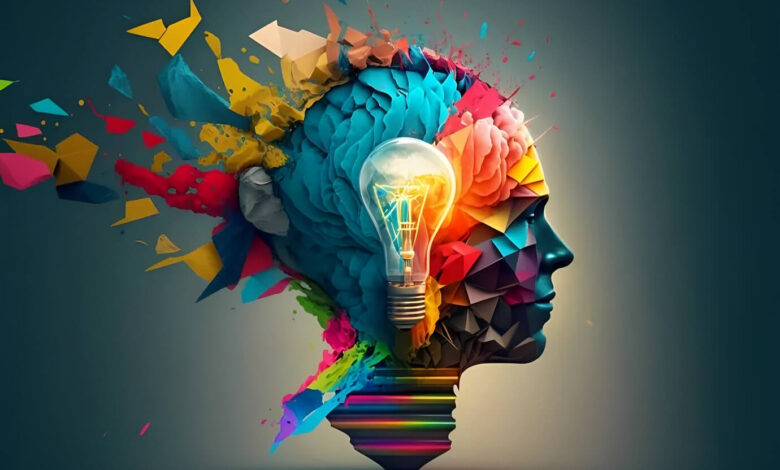
Artificial intelligence (AI) is indeed a powerful tool, revolutionizing the way businesses connect with consumers. From personalized recommendations to predictive analytics, AI has permeated every aspect of branding, offering unprecedented insights and opportunities for growth.
AI technologies have undergone rapid development in recent years, significantly transforming the conventional approach to branding. Gone are the days of one-size-fits-all marketing strategies. Today, AI-powered algorithms analyze vast amounts of data to understand consumer preferences, behaviors, and trends with unparalleled accuracy. By harnessing the power of machine learning and natural language processing, brands can create highly targeted and personalized campaigns that resonate with their audience on a deeper level.
AI in Branding
As AI continues to advance, its role in branding is becoming increasingly prominent, offering both innovations and opportunities for businesses. From personalized marketing campaigns driven by machine learning algorithms to chatbots providing instant customer support, AI is revolutionizing how brands connect with their audience.
Moreover, AI-powered analytics provide valuable insights into consumer behavior, enabling companies to refine their branding strategies for maximum impact. Embracing these AI-driven innovations can empower businesses to stay ahead in a competitive market landscape. Additionally, integrating AI technologies into a branding workshop can offer participants hands-on experience and practical insights into harnessing AI for brand enhancement and audience engagement.
Opportunities Provided by AI in Branding
1. Personalized Customer Experiences
Customer experiences determine whether a customer will be retained and willing to return. It is of high priority to tailor customer experiences to their respective needs. The value of Incorporating AI in your business branding cannot be overemphasized, with it, huge chunks of data can be analyzed within a short period and this data is collected to foster the understanding of consumer preferences and behaviors, enabling brands to deliver personalized product recommendations, targeted advertisements, and customized support through chatbots. By tailoring messaging and services to individual needs, brands can foster stronger connections with customers and drive brand loyalty.
2. Enhanced Customer Engagement
The advent of AI has reduced the human personnel involved in customer interaction, with the introduction of AI-powered technologies such as chatbots and virtual assistants, round-the-clock support and guidance can be provided to respective customers, automating routine tasks and reducing response times. This improves efficiency and enhances overall customer satisfaction. Brands can deliver instant support across various touchpoints, from product inquiries to order tracking.
3. Optimized Marketing Efforts
AI algorithms can forecast market demand, spot new trends, and maximize the impact of marketing initiatives by utilizing machine learning and predictive analytics. This makes it possible for brands to create brand strategies that are focused on client happiness. Brands can enhance conversion rates, optimize Return on Investment, and maintain an advantage over competitors by strategically delivering the appropriate message to the right audience at the right moment.
4. Innovative Content Creation
There’s a saying that goes like this; “Content creation is the new fuel”. What this personifies is that content creation is a key component of successful business branding. With the incorporation of AI in your brand, you are able to transform the approach you take towards content creation and curation, generating insights into consumer sentiment and behavior. This enables brands to create compelling and culturally relevant content, such as personalized product recommendations, interactive experiences, and immersive storytelling, fostering deeper connections with their audience.
5. Streamlined Operations
AI-driven solutions optimize internal processes, from supply chain management to inventory forecasting, improving efficiency and reducing costs. By harnessing the power of AI-powered analytics and automation tools, brands can make data-driven decisions, optimize resource allocation, and adapt to market changes with agility and precision.
Application of AI in Branding
Below are some applications of AI in branding. Its importance cannot be overstated.
1. Personalized Marketing
Through machine learning, AI is capable of analyzing customer data to understand individual preferences, behaviors, and purchase histories. This enables brands to deliver personalized marketing messages, product recommendations, and promotions tailored to each customer’s interests and needs. Whether through targeted email campaigns, customized website experiences, or personalized advertisements on social media platforms, AI-driven marketing ensures that brands engage with their audience in a meaningful and relevant way.
2. Predictive Analytics
Based on past data and industry insights, AI-powered predictive analytics tools project future patterns and consumer behaviors. Brands are able to predict shifts in consumer preferences, market dynamics, and demand by examining trends and finding correlations. This helps them to remain ahead of the competition in a market that is always changing, make proactive decisions, and optimize marketing efforts.
3. Chatbots and Virtual Assistants
AI-powered chatbots and virtual assistants provide instant support and assistance to customers across various touchpoints, including websites, social media platforms, and mobile apps. These intelligent algorithms can answer questions, provide product recommendations, and assist with transactions, enhancing the overall customer experience. By automating routine tasks and offering round-the-clock support, brands can improve customer satisfaction, increase engagement, and drive conversions.
4. Image and Video Recognition
AI algorithms can analyze visual content, such as images and videos, to understand consumer sentiment and preferences. Brands use image and video recognition technologies to monitor brand mentions, identify trends, and gauge audience reactions on social media platforms and other channels. This enables them to optimize their visual branding, create more impactful content, and engage with their audience in a visually compelling way.
5. Content Creation and Curation
AI tools generate and curate content based on data-driven insights and consumer preferences. From automated article writing to personalized product descriptions, AI-powered content creation streamlines the process of generating relevant and engaging content for various marketing channels. Additionally, AI algorithms can curate content from external sources, such as user-generated content and industry news, to enrich brand messaging and provide value to the audience.
6. Sentiment Analysis
AI-powered sentiment analysis tools analyze text data from social media, customer reviews, and other sources to gauge public opinion and sentiment toward a brand. By monitoring mentions and conversations, brands can assess their reputation, identify potential issues, and respond to customer feedback in a timely manner. Sentiment analysis enables brands to maintain a positive brand image, address customer concerns, and build trust and credibility with their audience.
Amidst all, AI technology is being leveraged in all sorts of fields and branding is not an exception.
Conclusion
Conclusively, AI in branding offers a wealth of opportunities for businesses to thrive in today’s dynamic market landscape. From personalized customer experiences to enhanced engagement, optimized marketing efforts, innovative content creation, and streamlined operations, AI empowers brands to connect with consumers in new and impactful ways. By embracing AI technologies, brands can unlock new avenues for growth, innovation, and competitive advantage, shaping the future of branding in an increasingly digital and data-driven world.
FAQs
- How does AI ensure that brands are well-equipped with the necessary marketing messages that resonate with individual customers’ interests and needs?
AI ensures that brands are well-equipped with the necessary marketing messages that resonate with individual customers by carefully analyzing vast amounts of data, including past purchase history, browsing behavior, and demographic information to identify similarities and differences. This data can be used to determine the preferences and needs of customers by segmenting them with AI into groups with unique characteristics.
- Can you provide examples of how brands effectively use AI-powered virtual assistants to enhance the customer experience?
A typical example of a situation where brands effectively utilize AI-powered virtual assistants is the aviation industry. Airlines use virtual assistants on their various social media platforms to help customers with flight bookings, itinerary changes, travel-related inquiries, and other tasks.





